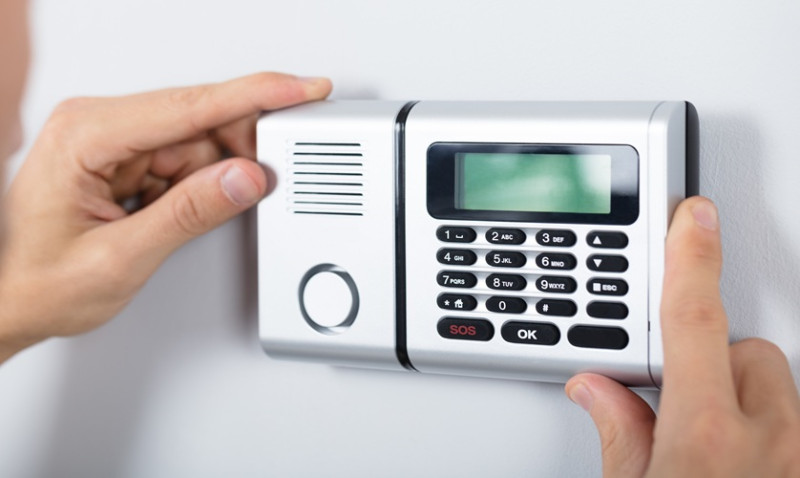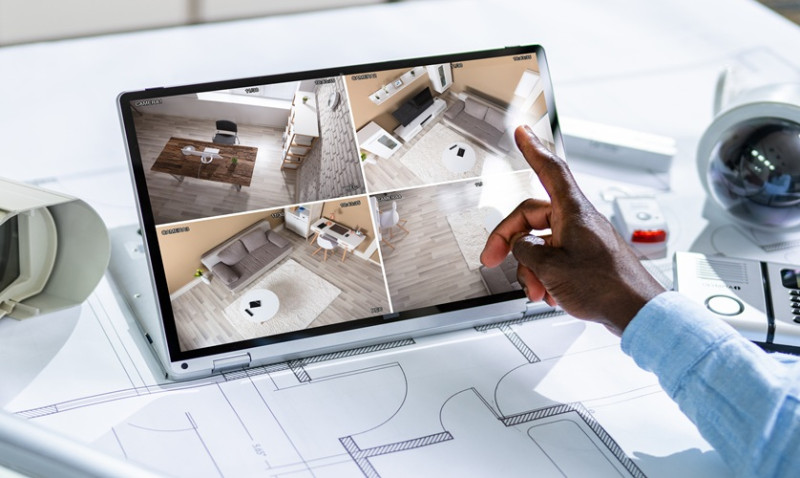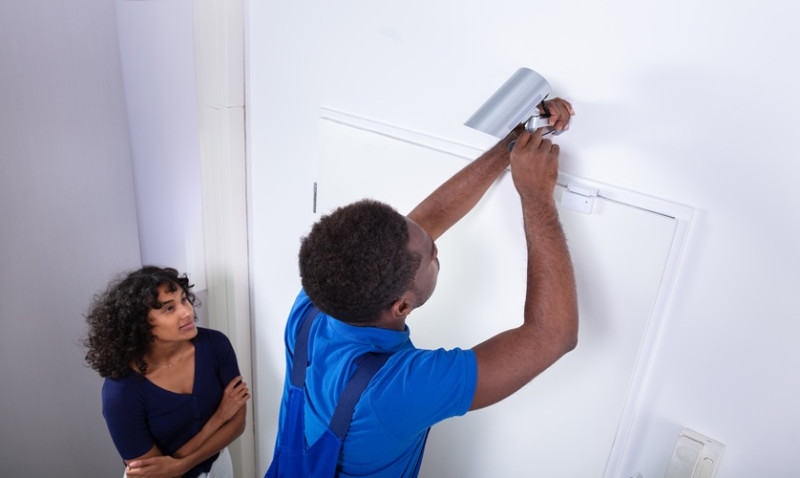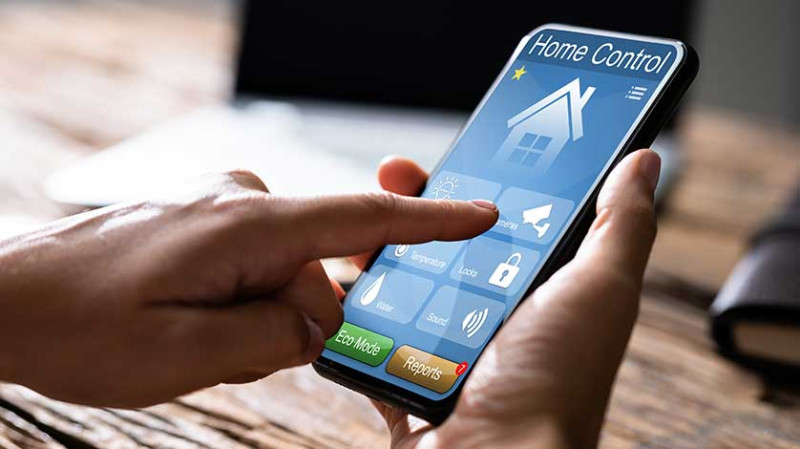
Whether you're a first-time homeowner, a DIY enthusiast looking to upgrade your house, or a professional such as an architect, designer, or tradesperson working on residential projects, home security is more crucial than ever. As technology evolves and smart features become more accessible, integrating reliable home security systems is no longer a luxury—it's a necessity. In this comprehensive guide, we explore everything you need to know about home security systems and alarm solutions in the UK.
Why Home Security Systems Matter
The safety of loved ones, property, and possessions remains a top priority for households across the UK. With increasing awareness around crime prevention and technology-driven safety features, installing a home security system provides peace of mind and potential financial savings through reduced insurance costs.
Alarm systems offer deterrents against opportunistic burglars, vandalism, and even environmental hazards like smoke, flooding or carbon monoxide leaks. Their presence alone—especially when visible through external cameras or signage—can prevent incidents before they happen.
For DIYers, advanced home security systems offer seamless integration and customisation. Most products are now designed for straightforward installation, with wireless connectivity, smart home compatibility, and no professional wiring needed. Professionals such as architects and interior designers can also recommend solutions that blend functionality with style, ensuring that security doesn’t compromise the aesthetics of a home.
Types of Home Security Systems Available in the UK
There are several categories of home security systems available to homeowners and professionals in the UK. Each type serves different needs, and many can be combined for optimal protection. Here's a breakdown:
- Monitored Alarm Systems: These systems connect with a remote monitoring center that reacts to triggered alarms and contacts emergency services on your behalf.
- Unmonitored Alarm Systems: They trigger a loud alarm or local alert but don't automatically notify authorities, relying on neighbours or the homeowners to respond.
- Wireless Systems: Using Wi-Fi or cellular connectivity, they are the go-to option for DIY installations. They typically involve sensors, cameras, and alarms without hardwiring.
- Wired Systems: Hardwired into the electrical system, these are often more stable and recommended for new builds or large-scale renovations by architects or electricians.
- Smart Home Security Systems: These integrate with devices like Alexa, Google Home, and mobile apps, giving users real-time alerts and remote control via smartphones.
When choosing the right type, consider the size of the property, occupancy schedule, available budget, and the willingness to install systems yourself versus hiring a specialist.
Essential Features to Look for in a Home Security System
The difference between a basic system and a high-performing home security setup comes down to features. In the UK, it's important to consider typical property layouts and environmental concerns when selecting a system. Here are the must-have features:
- Motion Sensors & Door/Window Sensors: Crucial for detecting unauthorised movement or entry.
- Surveillance Cameras: Indoor and outdoor cameras with night vision, motion detection, and recording capabilities are vital for documentation and monitoring.
- Smartphone App Control: Allows users to control and monitor security equipment remotely, set alerts, or disarm systems when needed.
- 24/7 Professional Monitoring: Ideal for those frequently away from home or managing large properties.
- Battery Backup: Prevents downtime during power outages—particularly important during winter months in the UK.
- Environmental Sensors: For flood detection (critical for basements), carbon monoxide alerts, and smoke detection.
Choosing a system with flexibility ensures adaptability as your home or household changes over time. For professionals, offering your clients scalable solutions ensures long-term value and security.
Cost of Home Security Systems in the UK
One of the first questions anyone asks is: How much does a security system cost? While prices vary depending on features and providers, here’s a general breakdown across the UK market:
| System Type | Upfront Cost (From) | Monthly Fees (If Applicable) | Installation Type |
|---|---|---|---|
| DIY Wireless System | £150 - £500 | £0 - £25 | Self-install |
| Wired Professional System | £500 - £1,500 | Usually £0 | Professional Install |
| Monitored System | £300 - £1,000 | £20 - £50 | Either |
| Smart Home Integrated System | £200 - £800 | Varies (Cloud storage/app use) | DIY or Pro |
While professional installations may incur higher up-front costs, they offer enhanced reliability and are often essential in large properties or multi-occupancy buildings. DIY systems work well for smaller homes or those undergoing renovation projects where the user wants control and flexibility.
Top Home Security Brands in the UK
The UK market is rich with trusted and innovative brands offering robust home security products. When selecting a system for personal or professional use, it’s important to choose one supported locally and compliant with UK regulations. Here are some of the top-rated brands:
- SimpliSafe: Popular for its user-friendly DIY installation, high app ratings, and flexible 24/7 monitoring.
- Ring by Amazon: Known for its doorbell cameras, Ring offers scalable alarm systems and excellent app integration.
- Yale: A household name in security with a wide range of smart locks, alarms, and CCTV kits ideal for UK homes.
- ADT: A premium option offering professional installation and monitoring, perfect for large homes and luxury properties.
- Netatmo and Eufy: Affordable smart security solutions with European design and reliable app control.
Make sure to check for compatibility with smart home assistants, warranty terms, and UK-based customer support when comparing brands.
Installation and Integration Tips for UK Homes
Installation of modern home security systems has become much more accessible. For DIYers, wireless setup allows quick and flexible placement of sensors and devices. Many kits come with peel-and-stick adhesives or mounting accessories for hassle-free assembly.
For pros like designers and architects, advise clients to plan security zones during early renovation stages. Pre-planning power supply points and Wi-Fi range extenders can improve camera coverage and system reliability.
Common UK housing features such as semi-detached layouts, garden fencing, and narrow entries require careful sensor and camera placement. Focus on ground-level access points, rear entrances, and garage spaces. In multistory homes, consider placing sensors near stairwells and hallways to cover internal movement.
When integrating with existing smart home systems, make sure the security system supports platforms like Alexa, Google Assistant, or Apple HomeKit. Some brands also offer IFTTT functionality for custom automated routines, such as switching on lights when motion is detected at night.
Home Security Legal Considerations in the UK
Before installing any visual monitoring systems, it’s essential to follow relevant UK laws regarding privacy. Under the Data Protection Act and UK GDPR, homeowners using external surveillance cameras must ensure they don’t infringe on neighbours’ privacy or record beyond their property boundaries.
Display signage if using CCTV, even at residential properties. It’s a legal requirement if your system captures footage outside your property line. Similarly, ensure audio recording is used responsibly, especially in smart doorbells or cameras with two-way talk functions.
Professional security installers and electricians should keep up to date with SSAIB (Security Systems and Alarms Inspection Board) and NSI (National Security Inspectorate) certifications to ensure their work meets legal and insurance standards in the UK.
Final Thoughts
Home security systems are more accessible, customisable, and essential than ever. The UK market offers comprehensive options for homeowners, designers, and trade professionals looking to enhance safety, protect assets, and increase property value.
Whether you opt for a simple wireless kit or a fully integrated smart network monitored by professionals, the key is thoughtful planning, reputable brands, and compliance with UK standards. Empower yourself or your clients with the peace of mind that comes from dependable home protection.
Are you ready to secure your home or your next project? Explore our curated selection of top-tier home security brands available across the UK—designed with your safety and lifestyle in mind.





